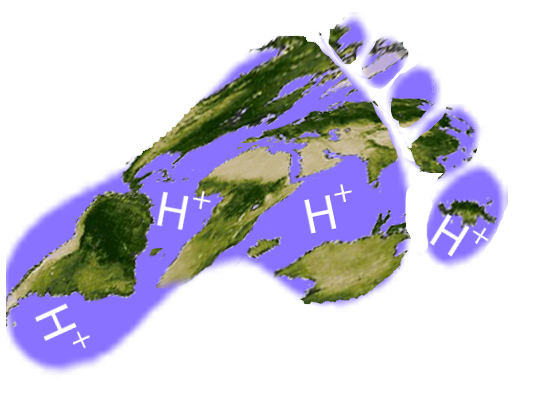
In addition to the famous impacts of atmospheric carbon on global warming, there is an equally worrisome effect of carbon dioxide on the oceans: ocean acidification (or OA for short). Here at I2SEA we have a series of resources about OA, including Our Acidifying Ocean, which is an introductory activity and virtual lab (note: now mobile compatible!).
A student suggested that we start a conversation topic about OA, and here it is! Have you heard about Ocean Acidification? If so, are you worried about it? How do you think we can best raise awareness about it among your fellow students and the general public? Have you seen particularly good links or films about OA that you would like to share? What are you doing to address the problem?
Ocean Acidification >
Protect the ocean!

Protecting the ocean is essential for life on Earth.Oceans are vital sources of oxygen,food and resources,and their conservation is crucial to our health and the health of global ecosystems.

Yes, I agree but how do we protect our ocean from acidification? First, we must understand what causes acidification. Ocean acidification is caused because more carbon dioxide is dissolving into the Ocean than ever before. It is natural for CO2 to dissolve into the ocean because the Ocean is a carbon sink. However, because of the industrial revolution and deforestation a surplus amount is being absorbed by the ocean which lowers the ocean's pH levels. The lower the pH levels are the more harmful it is to certain organisms who depend on the Ocean to survive. We must find ways to lower our carbon emissions as a whole to prevent any further extra acidification.
read this article to learn more on this topic:
https://www.nhm.ac.uk/discover/quick-qu … uses-ocean-
acidification.html#:~:text=Ocean%20acidification%20is%20mainly%20caused,being%20absorbed%20by%20the%20ocean.

I agree, and even little things you can do at home can help protect ocean life. Things such as properly disposing of waste and conserving water are great ways to help even just a small amount. Another great way is to use less energy around the house, ways to do this are using energy efficient appliances and lightbulbs, keeping lights off when your not using them, and trying to limit large appliance usage. Even if these make a small difference if everyone pitches in we can help the bigger picture greatly. Many corporations also help contribute to restoring and conserving ocean life, they do this through many techniques such as rebuilding reefs and salt marshes that guard against storms and flooding, and protecting "Super Reefs" which are reefs which can survive hot temperatures and are used to help grow new generations of coral. We can make a difference by supporting and donating to these corporations which often rely on donations to operate.

I completely agree; oceans are one of the most important contributors to human life. However, humans have caused great damage to the ocean. So how can we protect the ocean, and keep it healthy? Well, according to National Geographic, there are over 5.25 trillion of plastic in the ocean. This plastic kills sea life and is incredibly damaging to the ocean. To fix this, we can try to limit the plastic we use and correctly sort our trash. For example, instead of buying Ziploc bags, you can buy glass containers, which are reusable and don't cause damage to the environment after you dispose of them. Limiting your use of plastic leads to less plastic being put in the ocean. Similarly, we can also protect our ocean from acidification. Ocean acidification is the decrease in the pH of the ocean caused by too much carbon dioxide. The ocean naturally absorbs CO2, but abounding too much can lead to acidificaction, which harms sea plants and animals. To stop this crisis, we can try to limit our carbon footprint. According to I2SEA, the average human produces 3 791 kgs of CO2 per year, and even more in the United States. To reduce this number, we can drive to avoid driving and can use public transportation, biking, or walking instead. We can also try to invest in renewable energy sources, like solar panels, which use energy from the sun for electricity. This not only reduces your carbon footprint but saves you money. You can also try to eat less meat. Animals produce a lot of greenhouse gases, and not eating meat means not giving money to these companies that exploit and harvest animals.





